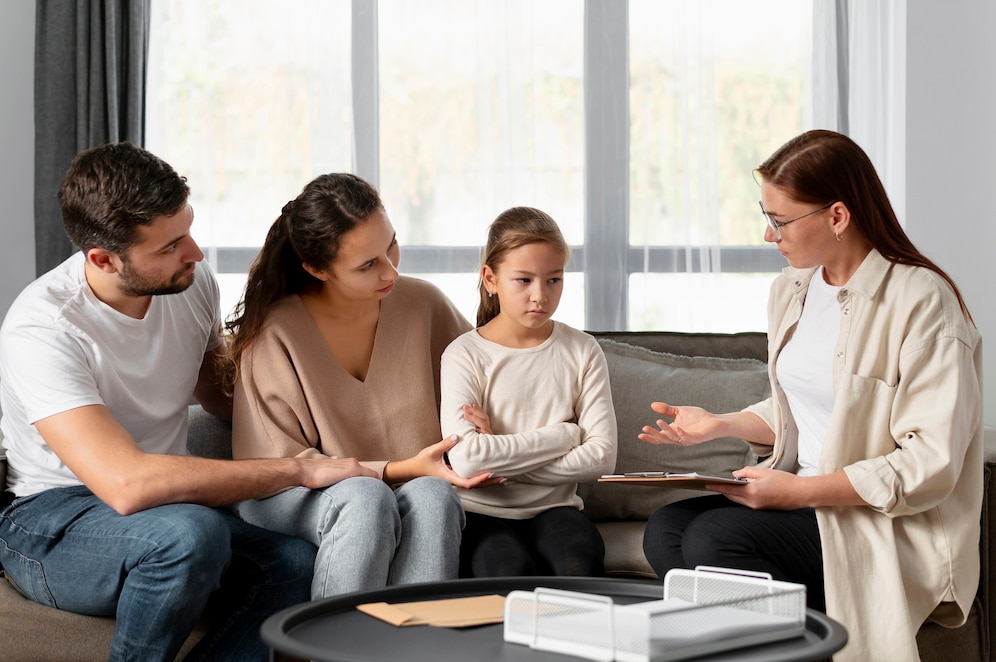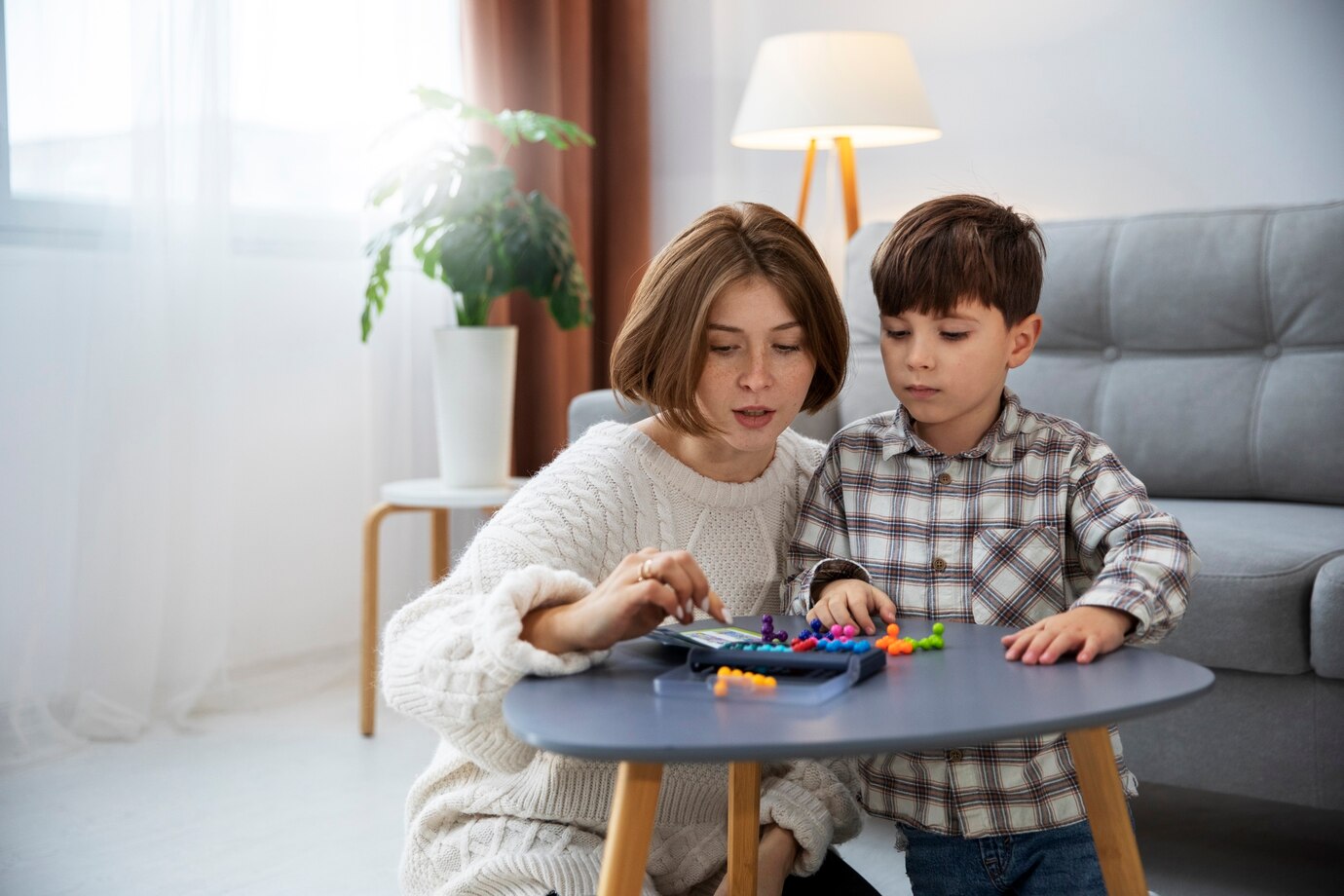
How to Discipline Without Yelling: Effective Alternatives
In parenting, discipline is an important part that shapes a child’s behaviour and future interactions. The traditional method of yelling for discipline often backfires. It can strain relationships and cause emotional pain for both parents and kids. This blog shows how to discipline without yelling. It covers gentle techniques that encourage good behaviour and long-term change.
The importance of this topic cannot be overstated. As we focus more on mental health and emotional intelligence, it’s important to learn how to correct behaviour without yelling. This helps raise well-rounded individuals. Positive parenting discipline helps children behave well. It also builds a strong bond between parent and child. This creates a loving and supportive space for growth.
Key Benefits of Gentle Discipline Techniques

Why It Matters
Gentle discipline techniques are becoming popular. Many parents want to guide their children without using harsh methods. The benefits of adopting such approaches are manifold:
- Improved Communication: By avoiding yelling, parents open channels for better communication. Children feel heard and respected, which encourages them to express their thoughts and feelings more openly.
- Emotional Regulation: Gentle discipline helps children learn to manage their emotions. When parents model calmness and patience, children are more likely to emulate these behaviours.
- Enhanced Self-Esteem: Positive parenting discipline reinforces a child’s sense of self-worth. When children are disciplined with kindness and understanding, they develop a healthy self-image.
- Stronger Parent-Child Relationship: A non-yelling approach fosters trust and mutual respect. Children feel safe and supported, knowing that their parents will handle conflicts with empathy and care.
- Long-Term Behavioural Change: Yelling often leads to temporary compliance. Gentle discipline techniques promote lasting behavioural change. Children learn to internalise good behaviour rather than acting out of fear.
Real-Life Applications
Consider the case of a parent who consistently yells at their child to tidy up their room. While the child might comply in the short term, the underlying issue remains unresolved. A parent who uses gentle discipline might sit with the child. They can talk about why tidiness matters. Then, they can set clear expectations and create a cleaning routine together. This approach addresses the immediate problem and instils a sense of responsibility in the child.
Step-by-Step Guide to Disciplining Without Yelling
Understanding the Root Cause
Before implementing any discipline strategy, it is essential to understand the root cause of the behaviour. Children often act out due to unmet needs, such as hunger, fatigue, or a desire for attention. Parents can stop many behaviour problems by finding and fixing these underlying issues.
Setting Clear Expectations
Clear communication is the cornerstone of effective discipline. Parents should articulate their expectations calmly and straightforwardly. For example, instead of saying, “Stop making a mess,” a parent might say, “Please keep your toys in the play area.” Providing reasons for rules helps children understand their importance and increases compliance.
Using Natural Consequences
Natural consequences are a powerful tool in gentle discipline. They allow children to learn from their actions without the need for punishment. For example, if a child doesn’t wear a coat on a cold day, they’ll feel cold. This shows them why it’s important to dress properly. Similarly, if a child forgets to bring their lunch to school, they will experience mild discomfort but will likely remember next time.
Implementing Time-Ins Instead of Time-Outs
Traditional time-outs can feel isolating for children. Instead, consider using time-ins, where the child is encouraged to sit with a parent and talk about their feelings. This approach fosters emotional connection and helps children process their emotions constructively. For example, if a child is throwing a tantrum, sitting with them in a quiet space and calmly discussing their emotions can help them regain control.
Encouraging Problem-Solving
Empower children by involving them in the problem-solving process. When a conflict arises, ask the child for their input on how to resolve the issue. This not only teaches critical thinking but also reinforces that their opinions are valued. For instance, if siblings argue over a toy, encourage them to find a fair way to take turns instead of stepping in to dictate a solution.
Positive Reinforcement
Recognise and celebrate good behaviour through positive reinforcement. Praise, rewards, and affection can motivate children to continue exhibiting desirable behaviours. For example, a simple “Thank you for sharing your toys” can go a long way in encouraging sharing. A reward chart for good behaviour can help build positive habits. It encourages kids without using material rewards.
Additional Expert Tips & Common Mistakes to Avoid

Best Practices Beyond the Basics
- Consistency is Key: Maintain consistency in your approach to discipline. Mixed messages can confuse children and undermine your efforts.
- Model Desired Behaviour: Children learn by observing. Demonstrate the behaviours you wish to see in your child, such as patience and kindness.
- Create a Calm Environment: A chaotic environment can exacerbate behavioural issues. Strive to create a calm and organised home atmosphere by maintaining routines and reducing stressors.
- Use Active Listening: Show children their feelings are valid by actively listening to their concerns. This builds trust and reduces the likelihood of misbehaviour due to frustration.
Common Mistakes and Misconceptions
- Ignoring Positive Behavior: It’s easy to correct negative behaviour. But we often overlook positive actions. Ensure you acknowledge and reinforce good behaviour regularly.
- Expecting Immediate Results: Behavioural change takes time. Be patient and persistent in your efforts.
- Using Bribes Instead of Rewards: There’s a fine line between rewards and bribes. Ensure that rewards are given as a result of good behaviour, not as a precondition for compliance.
- Overusing Consequences: Natural consequences work well, but too much reliance on them can leave children feeling unsupported. Balance discipline with support and understanding.
Advanced Insights and Expert Recommendations
Unique Industry Perspectives
Experts in child psychology emphasise the importance of empathy in discipline. Understanding a child’s perspective can significantly enhance the effectiveness of your approach. Consider the scenario from the child’s viewpoint to better address their needs. Encouraging self-reflection in children by asking, “How do you think that made your friend feel?” can help develop their emotional intelligence.
Lesser-Known Insights
Studies show that kids who get gentle discipline tend to have better emotional intelligence. This skill is key for handling social situations and creating strong relationships in life. Also, studies show that yelling raises anxiety in kids. This makes it tough for them to learn how to handle conflicts.
Guiding with Patience: The Power of Gentle Discipline

Learning how not to yell at discipline is a rewarding journey. Gentle discipline supports parents in developing trust, respect, and understanding. It’s a shift that takes patience and work, but the long-term payoffs for parents and kids are undeniable.
As you embark on this journey, remember that good discipline is not about control. It’s about raising your child and leading them to be a good and caring human being. Use positive parenting discipline, and see your relationship with your child grow.
If you found these insights helpful, consider sharing your experiences or questions in the comments below. Let’s keep talking about how to create a caring and supportive space for our kids.